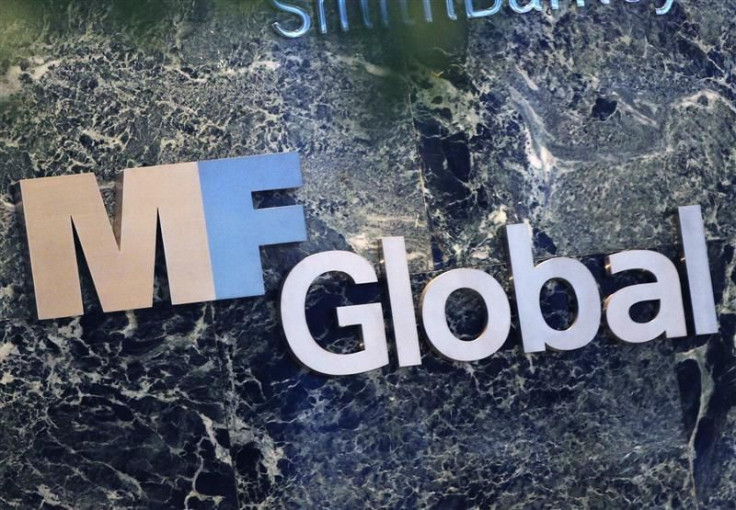MF Global Attempted Link with Bank of New York Before Collapse

(Reuters) -- A few months before MF Global collapsed in bankruptcy, some top executives at the futures firm were talking about a plan code-named "Project Honeydew" as a way of freeing up badly needed capital and cash.
Reuters has learned that in early September, MF Global reached out to Bank of New York Mellon Corp to inquire whether the big custodial bank would be interested in entering into a joint venture for processing and clearing certain customer transactions, according to four people familiar with the situation.
The idea was to effectively merge MF Global's clearing operation with Bank of New York's and to enable the futures firm to maintain less regulatory capital on its balance sheet, these people say.
The negotiations were preliminary and did not advance far largely because Bank of New York did not seem particularly interested in the idea advanced by MF Global, sources say. By the time MF Global filed for bankruptcy on Oct. 31, any talks with Bank of New York had long ended.
Kevin Heine, a Bank of New York spokesman, said, "We don't comment on market rumor or speculation."
A person close the company says the potential joint venture with Bank of New York was just one of several arrangements that companies were considering, and discussions about broadening their business relationship had been going on for many months.
The fact MF Global officials were looking for a way to reduce its regulatory capital in early fall could indicate that some at the firm were aware it needed to take longer-term measures to bolster its balance sheet.
"It was a great deal for MF Global, but not sure for Bank of New York," said a former MF Global employee familiar with the idea. "I'm not sure what they would get out of it."
Indeed, the idea of establishing clearing joint venture with Bank of New York coincided with a demand from the Financial Industry Regulatory Authority that MF Global boost its capital holdings to offset some of the risk associated with the firm's big bet on European sovereign debt.
Ultimately, it was margin calls from lenders that provided financing for MF Global's gamble on sovereign debt of countries like Italy, Spain and Ireland that led to the firm's collapse. MF Global's bankers and trading partners required the firm to post more collateral on those transactions after Moody's Investor Service downgraded its debt on October 24.
A week later, MF Global filed for bankruptcy despite a last-ditch attempt to raise cash by selling off billions in securities to Wall Street firms like Goldman Sachs Group and its futures brokerage arm to Interactive Brokers.
A potential last-minute deal with Interactive Brokers fell apart when it was discovered that at least $600 million in customer money was missing at MF Global. More than two months later, federal authorities are still trying to figure out where that customer money, which was supposed to have been kept separate from the firm's own money, may have gone.
The potential joint venture with Bank of New York, according to people familiar with the situation, was consistent with former MF Global CEO Jon Corzine's desire to transform the firm more into a trading firm than a brokerage.
The name "Project Honeydew" is believed to be a play on the "Mellon" part of Bank of New York's name. The code name was hatched by officials with MF Global and was just one of several potential strategic deals that investment bankers hired by the firm were brought in to consider.
It's not clear how active Corzine, the former New Jersey governor and U.S. senator, was in the Project Honeydew talks. The potential deal did not come up during his three days of testimony about the collapse of MF Global on Capitol Hill.
A Corzine spokesman was not immediately available for comment.
Bradley Abelow, MF Global's former president and chief operating officer, in a filing in the firm's bankruptcy proceeding, said the firm cleared and processed trades for its own customers and other small brokerage firms in the futures firm.
Clearing is a backoffice operation in which a firm executes and settles trades and requires a firm to set aside capital in the event a trade goes array and one party needs to be made whole.
MF Global reached out Bank of New York because the nation's oldest bank cleared and processed some of the firm's own trading in U.S. Treasuries.
The majority of clearing and trade execution for MF Global's proprietary trades were handled by JPMorgan Chase & Co, which also arranged a $1.2 billion line of credit for the futures firm.
Reuters previously reported that JPMorgan agreed to process a last-ditch sale of hundreds of millions of dollars worth of securities to Goldman Sachs on Oct. 27.
But JPMorgan did not immediately forward the proceeds from that sale as it was expected to do, say sources.
(Reporting by Matthew Goldstein; editing by Edward Tobin)
© Copyright Thomson Reuters 2024. All rights reserved.











